AWS riding sky high as cloud earnings drive broader organizational profits
AWS’ recent earnings showcase the division’s integral role in driving growth at the wider Amazon brand
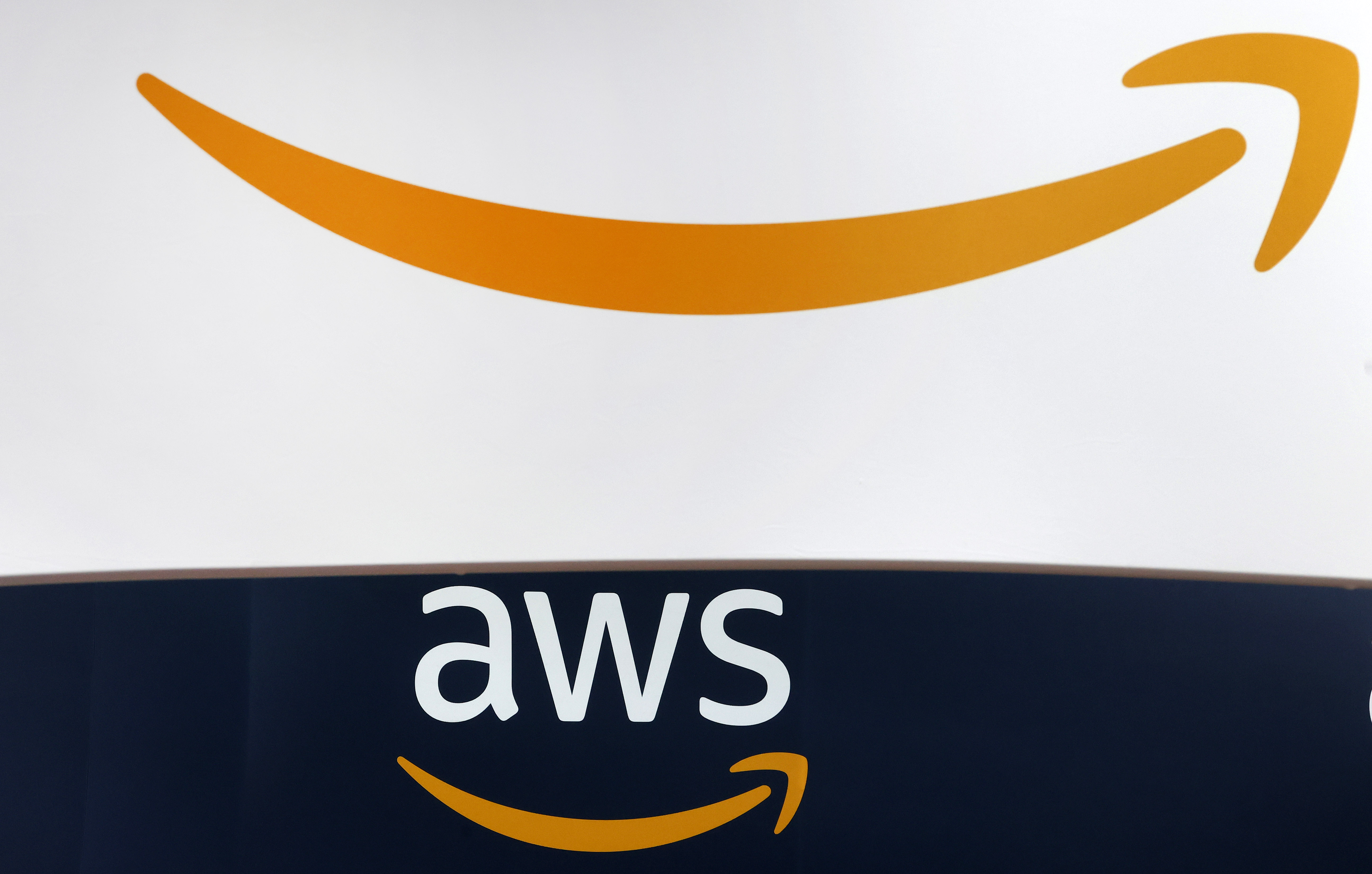

Amazon has recorded impressive quarterly growth off the back of a strong performance at the tech giant’s cloud division, AWS.
The cloud unit recorded $22.1 billion in sales across the most recent quarter, marking a 12% increase and exceeding analyst expectations.
While this marks a decrease on the prior quarter - in which it recorded a 15% sales growth rate - the recent earnings call underlines the integral role that the division plays within the broader organization.
Amazon recorded $7.7 billion in operating profits in Q2, of which AWS accounted for $5.4 billion, roughly 70%.
In a statement coinciding with the results, CEO Andy Jassy highlighted AWS’ performance as a key growth driver for the tech giant, despite ongoing economic uncertainty and decreasing client spending on cloud computing.
“Our AWS growth stabilized as customers started shifting from cost optimization to new workload deployment,” he said.
Strong performance from AWS
Jassy pointed specifically to recent generative AI moves at AWS as a key talking point in his earnings call statement, underlining the impact that Bedrock has had on the division in recent months.
Get the ITPro daily newsletter
Sign up today and you will receive a free copy of our Future Focus 2025 report - the leading guidance on AI, cybersecurity and other IT challenges as per 700+ senior executives
“AWS has continued to add to its meaningful leadership position in the cloud with a slew of generative AI releases that make it much easier and more cost-effective for companies to train and run models (Trainium and Inferentia chips), customize large language models to build generative AI applications and agents (Bedrock), and write code much more efficiently with CodeWhisperer,” he said.
Since its launch in April this year, Amazon Bedrock has been a huge source of excitement both at the firm and within the broader technology industry.
RELATED RESOURCE
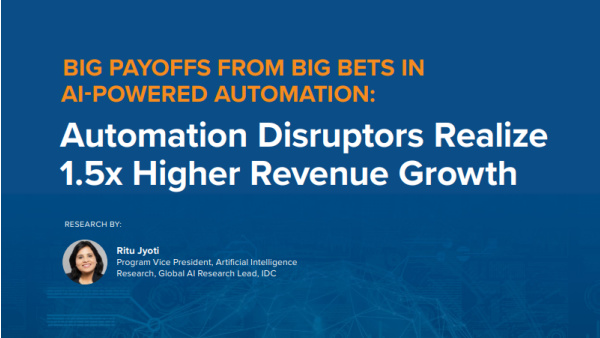
Discover the automation technologies that disruptors are using and how you can maximize the ROI for AI-powered automation.
DOWNLOAD FOR FREE
Last month, Swami Sivasubramanian, VP for database, analytics, and machine learning at the cloud giant, told Reuters that the company has drawn “thousands of customers” since its launch.
A host of major organizations, including Sony, Lonely Planet, and Ryanair are already using Bedrock to build generative AI applications.
This week’s earnings call also shed more light on the organizations flocking to Bedrock, with the company naming Royal Philips, Old Mutual, and HSBC among its newest customers.
Bedrock marked AWS’ first significant foray into the generative AI ‘race’ in an attempt to face off against Microsoft and Google.
The influx of new customers to the service suggests that the approach is working and is enabling the company to differentiate itself from competitors in the space by leveraging its established partner ecosystem to provide both proprietary and third-party LLMs.
AWS has also been aggressively expanding its geographic footprint in recent months with the announcement of several new cloud regions globally.
In May, the firm unveiled an ambitious $13 billion investment package to expand its presence in India. The move builds on a previous investment of around $3.7 billion and looks to capitalize on growth in India and South Asia.
Two months prior, the cloud giant committed an additional $6 billion to expand its Malaysian operations in another bullish move in the region.
Just this week, AWS said it plans to invest over $7 billion in building its footprint in Israel to create a new cloud region and support digital transformation in the government and public sector.
Phil Dawson, VP for research at Gartner, told ITPro that this latest move forms part of the company’s “natural evolution” as it continues to build its geographic sprawl and face off against competitors such as Microsoft in Europe and the Near East.
“I think there’s a couple of things at play here with AWS,” he said. “There’s that expansion and local investment that we’ve seen happening a lot, especially in Europe and Arab countries as well.
“A lot of capacity has been built in metropolitan areas where it’s needed. I think there's a natural geographic expansion going on at the moment.”
Dawson said that, traditionally, AWS has been “a little bit behind” Microsoft in its positioning in Europe due to the fact that Microsoft has focused specifically on cultivating a “broad European presence”.
“I think AWS investing here has broadened some of their in-country capabilities, which is a good step forward.”
Bucking industry gloom
AWS’ strong performance this year has come against a troubling economic backdrop that has witnessed significant consumer hesitancy in the global cloud market.
The beginning of 2023 was plagued with claims of a looming ‘cloud slowdown’ that some analysts predicted would create serious problems for major providers such as AWS, Google, and Microsoft.
However, while current earnings pale in comparison to highs witnessed in 2021, the firm is still consistently bucking economic trends and appears committed to investing its way through current economic hardships as part of a long-term strategy to invest and reap future rewards.

Ross Kelly is ITPro's News & Analysis Editor, responsible for leading the brand's news output and in-depth reporting on the latest stories from across the business technology landscape. Ross was previously a Staff Writer, during which time he developed a keen interest in cyber security, business leadership, and emerging technologies.
He graduated from Edinburgh Napier University in 2016 with a BA (Hons) in Journalism, and joined ITPro in 2022 after four years working in technology conference research.
For news pitches, you can contact Ross at ross.kelly@futurenet.com, or on Twitter and LinkedIn.
-
 Bigger salaries, more burnout: Is the CISO role in crisis?
Bigger salaries, more burnout: Is the CISO role in crisis?In-depth CISOs are more stressed than ever before – but why is this and what can be done?
By Kate O'Flaherty Published
-
 Cheap cyber crime kits can be bought on the dark web for less than $25
Cheap cyber crime kits can be bought on the dark web for less than $25News Research from NordVPN shows phishing kits are now widely available on the dark web and via messaging apps like Telegram, and are often selling for less than $25.
By Emma Woollacott Published
-
 ‘Europe could do it, but it's chosen not to do it’: Eric Schmidt thinks EU regulation will stifle AI innovation – but Britain has a huge opportunity
‘Europe could do it, but it's chosen not to do it’: Eric Schmidt thinks EU regulation will stifle AI innovation – but Britain has a huge opportunityNews Former Google CEO Eric Schmidt believes EU AI regulation is hampering innovation in the region and placing enterprises at a disadvantage.
By Ross Kelly Published
-
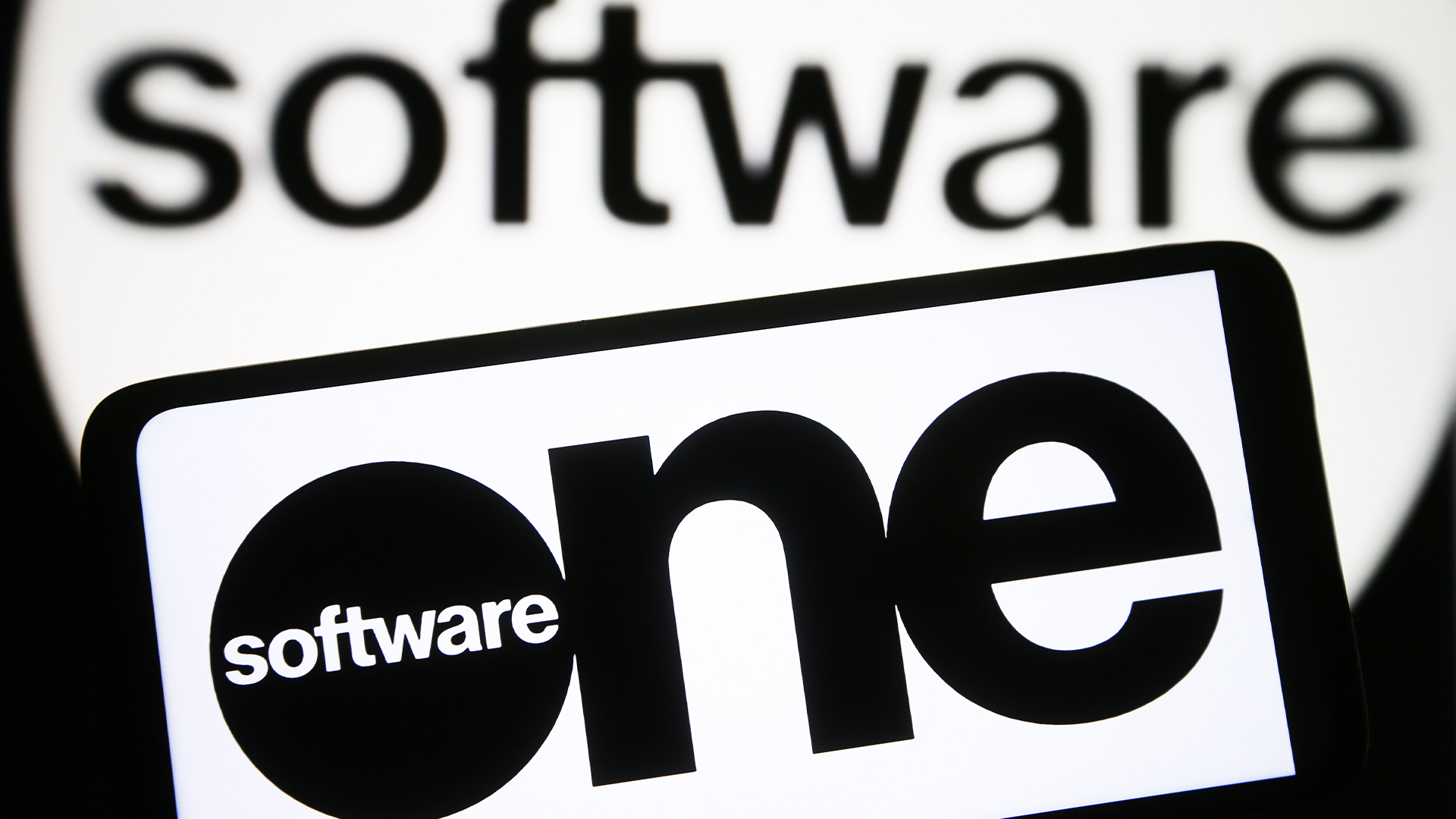 SoftwareOne to acquire Crayon in $1.4 billion merger deal
SoftwareOne to acquire Crayon in $1.4 billion merger dealNews The merged firm will be 'uniquely positioned' to capitalize on a $150 billion market
By Emma Woollacott Published
-
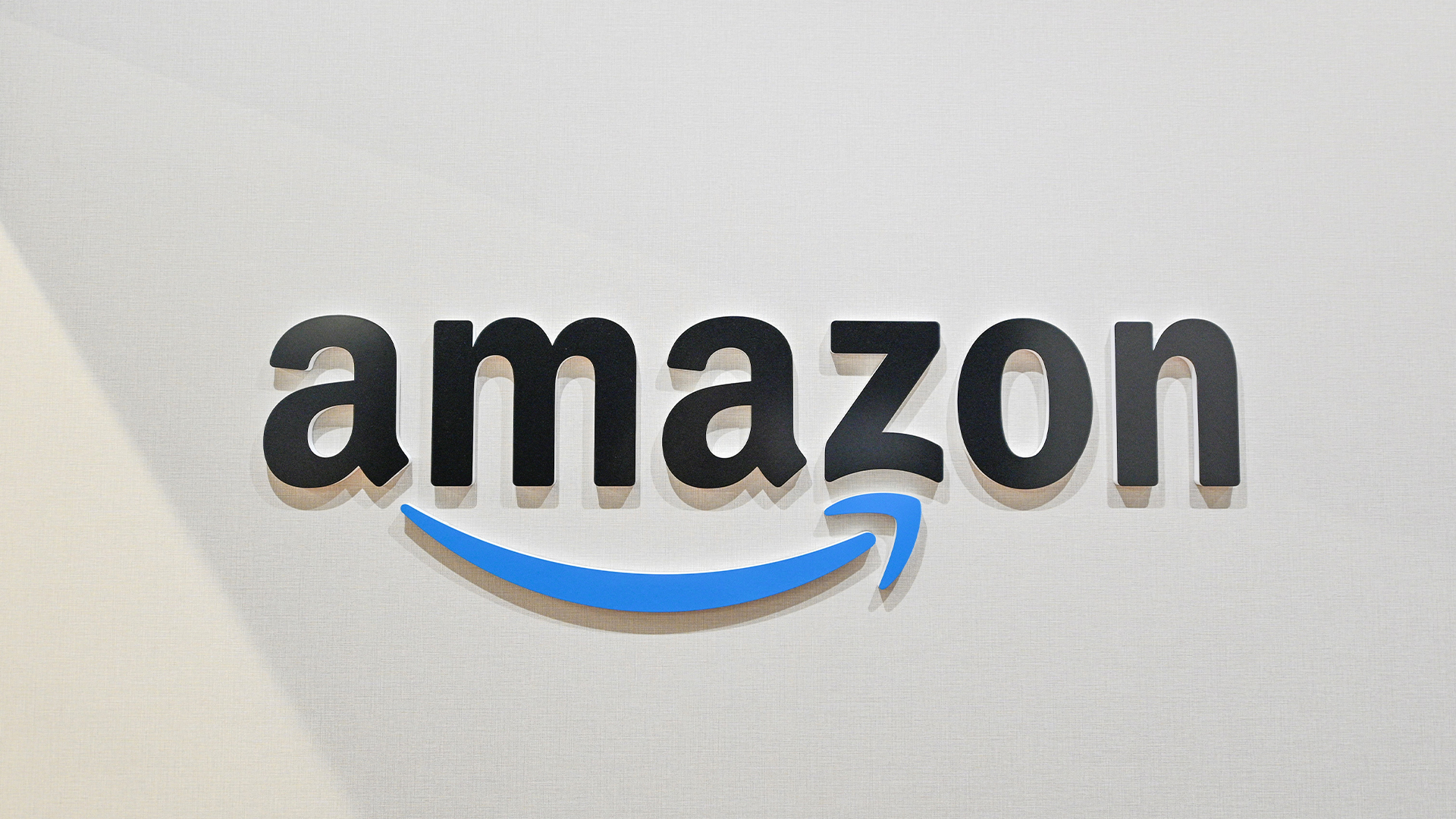 Amazon's RTO mandate could spark a talent exodus
Amazon's RTO mandate could spark a talent exodusNews A survey of Amazon staff suggests plenty remain unhappy about returning to the office next year
By Nicole Kobie Published
-
 Regulatory uncertainty is holding back AI adoption – here’s what the industry needs going forward
Regulatory uncertainty is holding back AI adoption – here’s what the industry needs going forwardAnalysis A lack of clarity on the legal side is hampering digital ambitions in Europe
By George Fitzmaurice Published
-
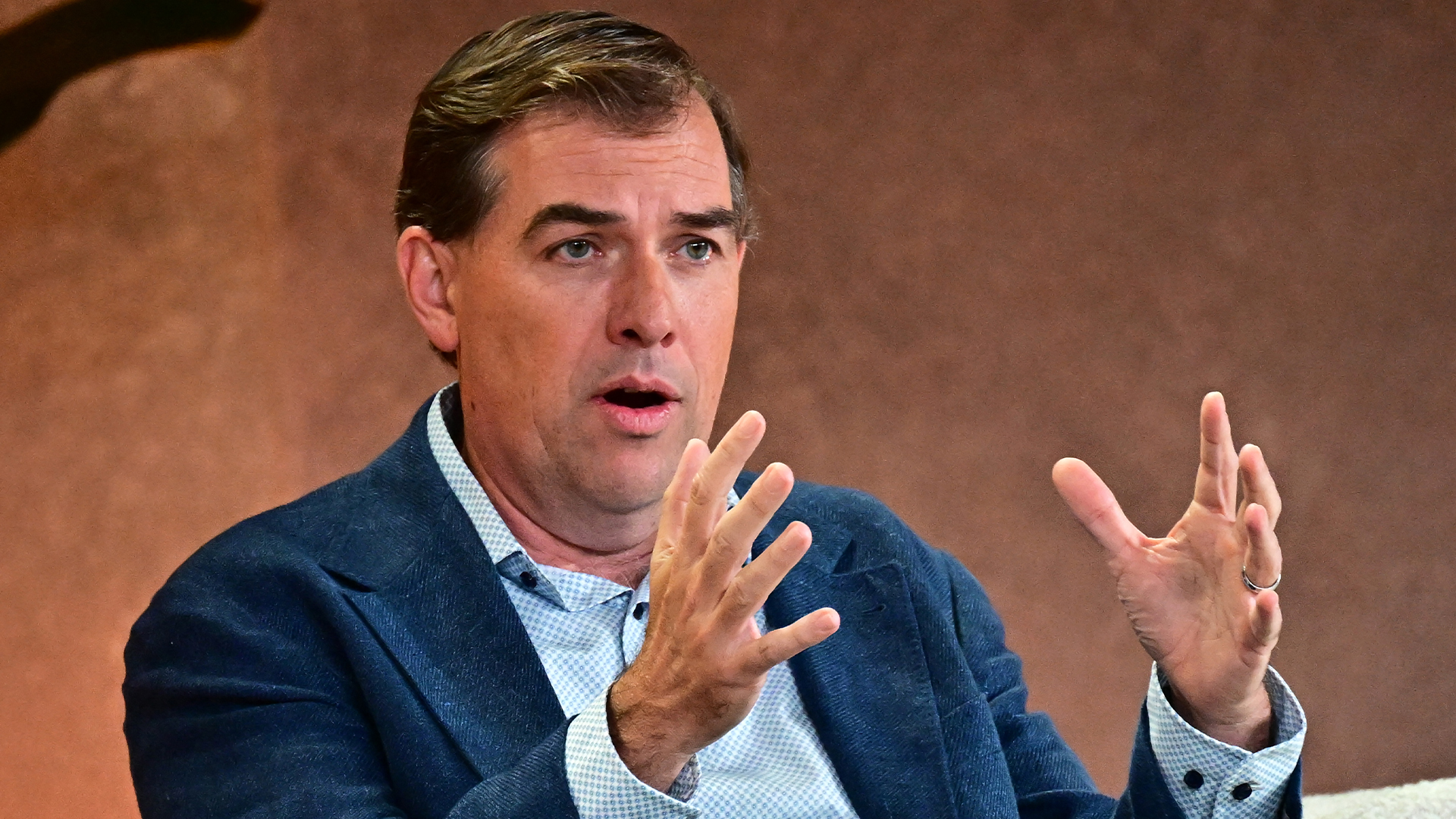 “There are other companies around”: AWS CEO Matt Garman says employees pushing back on RTO mandates should quit
“There are other companies around”: AWS CEO Matt Garman says employees pushing back on RTO mandates should quitNews AWS CEO Matt Garman says employees pushing back on RTO mandates should quit
By Nicole Kobie Published
-
 Amazon workers aren’t happy with the company’s controversial RTO scheme – and they’re making their voices heard
Amazon workers aren’t happy with the company’s controversial RTO scheme – and they’re making their voices heardNews An internal staff survey at Amazon shows many workers are unhappy about the prospect of a full return to the office
By Ross Kelly Published
-
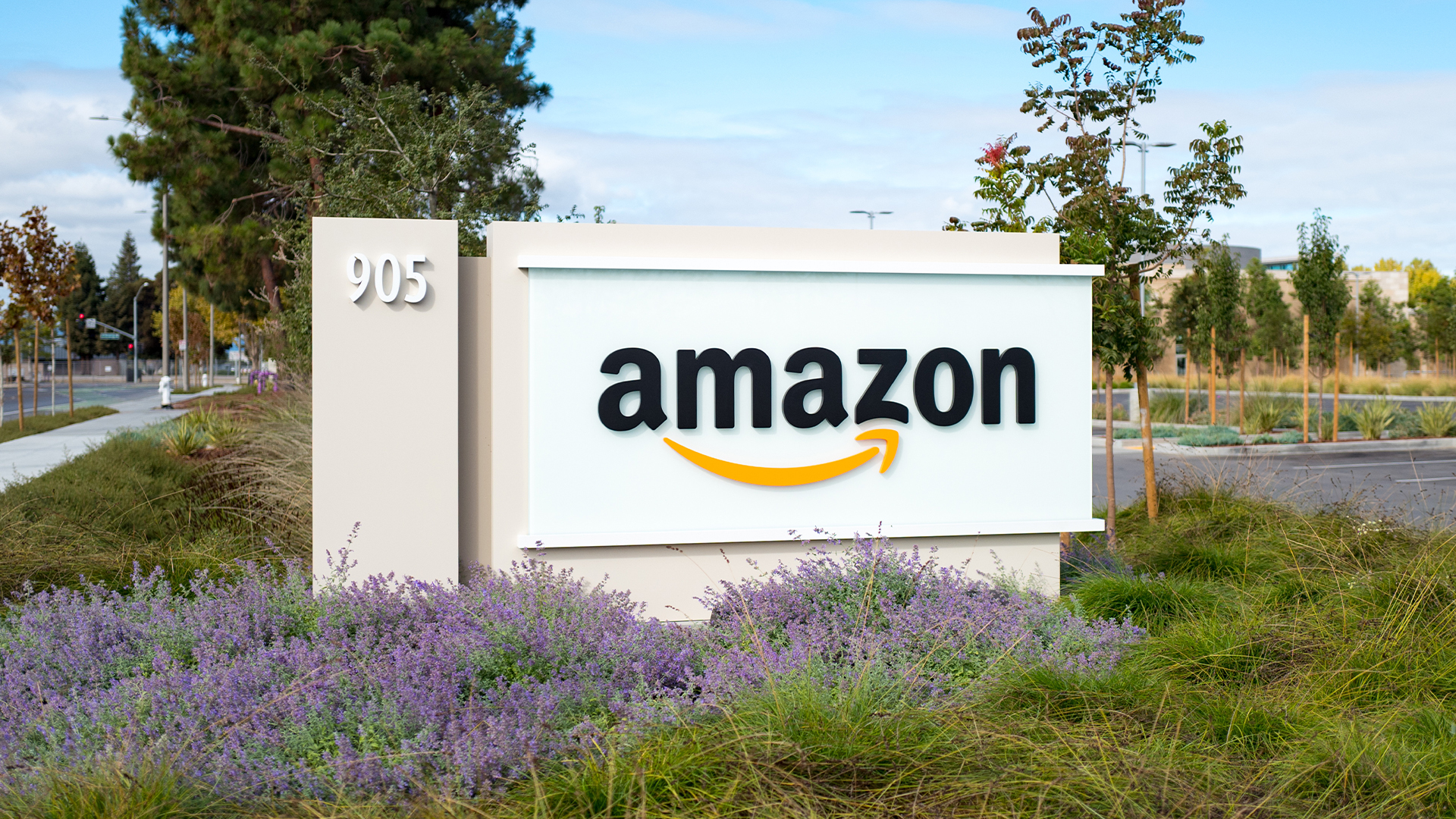 Amazon set a goal to reach 100% renewable energy by 2030 – it reached it seven years early
Amazon set a goal to reach 100% renewable energy by 2030 – it reached it seven years earlyNews The tech giant has rapidly accelerated renewable energy investment in recent years
By Ross Kelly Published
-
 ‘Data-driven’ SMBs are leaving competitors in the dust
‘Data-driven’ SMBs are leaving competitors in the dustNews An AWS survey shows that SMBs that make data a priority are making better use of AI - and reaping significant financial rewards
By Emma Woollacott Published